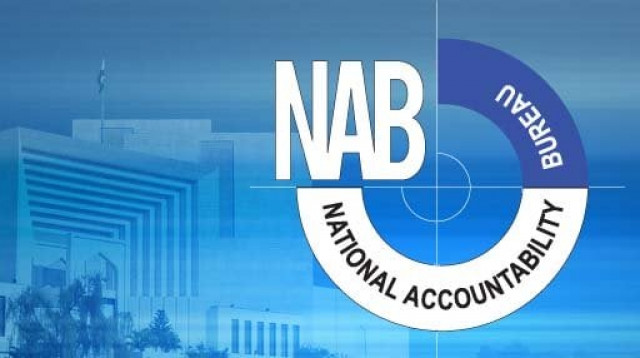NAB revamp on the cards
PM assures senor bureaucrats that reforms will be introduced soon

Senior bureaucrats – both serving and retired – have suggested to Prime Minister Shehbaz Sharif to reform the NAB legislation with a view to avoid alleged intimidation and humiliation at the hands of the anti-graft body.
The bureaucracy have been airing grievances with the past governments in what they call ‘harassment’ and ‘threatening’ attitude of NAB due to which the civil servants are reluctant to sign official files.
It has been proposed that the National Accountability Bureau (NAB) would able to keep a suspect under detention for 14 days instead of the present 90 days.
Read NAB should probe into illegal recruitments at NA secretariat: Memon
After the completion of 14 days, the suspect will be released on bail. If the bail is not granted, then they will remain in judicial remand instead of NAB custody.
The anti-graft body will not arrest anyone before an inquiry against the suspect is completed.
It will be the responsibility of NAB to prove that there were enough grounds to arrest the suspect.
These steps will not only improve the image of NAB but also make it easier for its officers to probe into a case.
According to sources, Prime Minister Shehbaz Sharif met a delegation of senior retried and current bureaucrats for their input in the changes in the National Accountability Ordinance 1999 – a law introduced by General Musharraf’ military regime.
The premier assured them that the NAB reforms would be introduced soon.
Read NAB okays probe against Farah Khan
The previous government on December 29, 2019 made drastic changes in the NAO through a presidential ordinance apparently in a bid to protect bureaucrats and the business community from NAB action.
According to some legal experts, the new ordinance — the National Accountability (Amendment) Ordinance, 2019 —made NAB a ‘toothless’ body since as it restricted the accountability body to take up cases involving corruption or corrupt practices exceeding an amount of Rs500 million.
The ordinance, however, expired after a period of 120 days in April 2020.
Under the 2019 ordinance, the role of the NAB chairman in the appointment of the prosecutor general was abolished.
The anti-graft body was also stopped from making a public statement at the stages of inquiry and investigation.
NAB could no longer get the custody of a suspect for 90 days and the period was curtailed to 14 days; the burden of proof that previously rested on a suspect was also shifted on the prosecution.
NAB came under fire especially in the wake of the Supreme Court’s July 20, 2020 verdict that explained reasons for granting bail to a couple of PML-N's senior leaders in a corruption case.
The 83-page order had raised serious questions about the conduct of NAB, stating that the accountability laws are “successfully employed “in the country as tools to change political loyalties and for splintering and fracturing political parties.
"Pygmies were selected, nurtured, promoted, and brought to prominence and power. People with notorious backgrounds and criminal credentials were thrust to rule us in various capacities with predictable results,” it said.
According to the verdict, "NAB's conduct throughout this case [against the PML-N leaders] is a clear manifestation of their utter disregard for law, fair play, equity and propriety". After, this verdict, major opposition parties called for disbanding the accountability watchdog.



















COMMENTS
Comments are moderated and generally will be posted if they are on-topic and not abusive.
For more information, please see our Comments FAQ